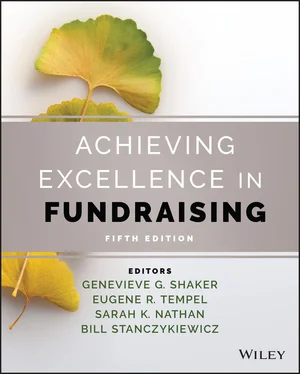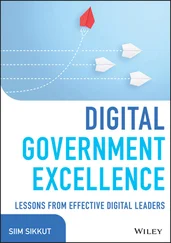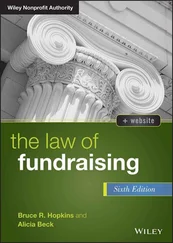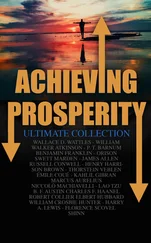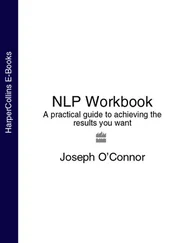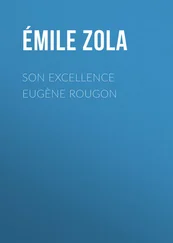Achieving Excellence in Fundraising
Здесь есть возможность читать онлайн «Achieving Excellence in Fundraising» — ознакомительный отрывок электронной книги совершенно бесплатно, а после прочтения отрывка купить полную версию. В некоторых случаях можно слушать аудио, скачать через торрент в формате fb2 и присутствует краткое содержание. Жанр: unrecognised, на английском языке. Описание произведения, (предисловие) а так же отзывы посетителей доступны на портале библиотеки ЛибКат.
- Название:Achieving Excellence in Fundraising
- Автор:
- Жанр:
- Год:неизвестен
- ISBN:нет данных
- Рейтинг книги:5 / 5. Голосов: 1
-
Избранное:Добавить в избранное
- Отзывы:
-
Ваша оценка:
- 100
- 1
- 2
- 3
- 4
- 5
Achieving Excellence in Fundraising: краткое содержание, описание и аннотация
Предлагаем к чтению аннотацию, описание, краткое содержание или предисловие (зависит от того, что написал сам автор книги «Achieving Excellence in Fundraising»). Если вы не нашли необходимую информацию о книге — напишите в комментариях, мы постараемся отыскать её.
Achieving Excellence in Fundraising
Achieving Excellence in Fundraising
Achieving Excellence in Fundraising
Achieving Excellence in Fundraising — читать онлайн ознакомительный отрывок
Ниже представлен текст книги, разбитый по страницам. Система сохранения места последней прочитанной страницы, позволяет с удобством читать онлайн бесплатно книгу «Achieving Excellence in Fundraising», без необходимости каждый раз заново искать на чём Вы остановились. Поставьте закладку, и сможете в любой момент перейти на страницу, на которой закончили чтение.
Интервал:
Закладка:
This volume speaks to the latest innovations in the field while addressing the perennial challenges involved in building meaningful relationships to support worthy causes. It also provides readers an opportunity to revisit the foundations of fundraising. What is the purpose of this activity? Who are its protagonists? And how does the work and those who enable it fit into conceptions of a good society and how we belong together – ideas that seem much more unsettled now than they were when the first edition of this book appeared thirty years ago.
In light of the political divisiveness of our times, as well as the global challenges exacerbated by the pandemic, it is perhaps all the more remarkable that we have a profession and a field of inquiry devoted to the relationships we build to advance the common good. As a formal profession, fundraising can be seen as a collective realization that we need to build community among the systems that modern society has created to enable us to interact at vast and impersonal scale.
Communities based on fundraising relationships are built as correctives to fix social problems. Or, they seek to ameliorate by enhancing the lives of others. Whether fixing or building, communities are valuable means to achieve important public goals, hopefully ones we can all appreciate.
To appreciate fundraising is to appreciate the scale of community, where people know each other personally and can make meaningful connections to those they aim to help. Yes, there is a universal human connection that moves us to donate to far‐off strangers, but that usually relies on the salience of our common mortality to grab our attention – something like a disaster.
So, as we consider the role of fundraising in our rapidly changing world, I am impressed by its role in fostering meaningful relationships that help us define who we are. No matter how technology, the economy, and political movements upend daily life, there is lasting value in building authentic relationships that seek to improve our world.
Communities are means to other ends, but they are also valuable in their own right. This is also the case with fundraising. As you excel in the craft, you too are likely to find pleasure and satisfaction in the process of fundraising. Relationships built on the road to elsewhere are often valuable milestones that give truth to the saying that the journey is more important than the destination. The relationships you build, aided by the discoveries you will experience in this book, will add to the satisfaction you derive from advancing the causes you serve.
I suspect this is also the case with my colleagues who put together this compendium of insights, provocations, guidelines, and prompts for discussion. Seeing this book roll off the printing press (and its digital counterpart) is a moment of achievement deserving celebration. But it pales in comparison to the multitude of moments of learning and debate it will facilitate, and the countless professional and volunteer fundraisers whose talents will blossom by engaging the thoughts and experiences that have been compiled as signposts for their journey.
Achieving Excellence is a vital institution because it enables journeys of fundraising that will shape our times. Bon voyage!
Amir Pasic
Eugene R. Tempel Dean
Indiana University Lilly Family School of Philanthropy
September 2021
PREFACE
As we began work on this edition in spring 2020, nonprofits and fundraisers around the world faced challenges and uncertainties like never before. The novel coronavirus was in its first months and economies were staggering with the related pressures. In the United States, a social justice movement was spotlighting historical and structural issues related to racial equity. Similar social movements were occurring around the globe. Nonprofits were reflecting deeply on their commitments to equity and inclusion. Some faced exponential rises in needs for services, and others experienced declining opportunities to deliver their missions and garner needed income.
Because of COVID‐19, we could not gather in person for editorial meetings at the Indiana University (IU) Lilly Family School of Philanthropy at IUPUI. Rather, we met online as our university leaders explored the best ways to keep our community healthy and safe and maintain financial stability. Indiana University fundraisers paused to make sense of campus and community needs and expectations, rather than completing previously planned efforts. Like their peers at other colleges and universities, they called and wrote donors to check on their well‐being and to provide updates. They resumed fundraising, prioritizing emergency support for students, whose need for special assistance was quickly evident.
Just as university fundraisers were navigating unknown territory, fundraisers across the wide and diverse nonprofit sector found themselves scrambling to keep up with pressing demands for more resources. Their responsibility for funding organizational missions weighed heavily and they wondered how to build relationships without seeing donors in person. Like clients, donors, and everyone else, fundraisers struggled with their own personal difficulties and uncertainties.
As it turned out, we all soon witnessed the generosity of people helping their neighbors and communities in extraordinary ways. College students creating direct aid programs, providing funds, food, and even temporary housing for one another. Monetary gifts from individuals flooded into food pantries, community health organizations, schools, and social service agencies of all kinds. Small business owners shifted from profit‐making activities to providing free meals for frontline workers and making masks, isolation gowns, and hand sanitizer. Foundations responded by loosening grant restrictions, corporations made public pledges to aid in relief efforts, and both broadened commitments to social justice funding. State and local governments shifted priorities to address the pandemic, and the whole of society adjusted.
Now, two years later, we know that 2020 was the most generous year on record. Giving USA (2021) recorded $471.44 billion dollars in charitable giving driven by increased contributions from foundations and individuals. Although more difficult to track, direct giving, mutual aid, and other forms of informal giving and helping also appeared to increase in popularity (Stiffman 2021c). Online giving grew exponentially. Almost half of all households reported paying for services not used during pandemic closures such as childcare and gym memberships, while frequenting local businesses for take‐out meals and other needs (Mesch et al. 2020). Most nonprofits survived, battered and exhausted by the crisis, and some with smaller teams than before, but with a sense of relief as operations resumed more normally (Parks 2021). Through it all, fundraisers' work proceeded, bringing new perspectives and practices, and overcoming challenges. As this book goes to press, the learning and adapting continues.
A Strong Tradition
In 1991, when Henry “Hank” Rosso wrote the preface for the first edition of Achieving Excellence in Fund Raising he noted how fundraising changed following World War II, a defining event for his generation. Like Hank's experience, our editorial perspective is shaped by a defining time period. Given the events in 2020 and 2021, this book includes a new section dedicated to contextual factors and evolving conditions. Without certainty of how the past two years will ultimately shape fundraising, we became acutely aware that conditions can change quickly. In years to come, fundraisers must be prepared to adapt more quickly and more intentionally than at any time in the recent past. Thus, throughout the book, we tried to balance innovations and changes in raising money with time‐tested best practices – research that is still emerging as the book is in production – and professional habits honed over years of pre‐pandemic experience. It was also important to us that this edition include many voices and that chapters draw attention to equity and justice in fundraising, including beneficiary representation and rights and ideas from community‐centric fundraising.
Читать дальшеИнтервал:
Закладка:
Похожие книги на «Achieving Excellence in Fundraising»
Представляем Вашему вниманию похожие книги на «Achieving Excellence in Fundraising» списком для выбора. Мы отобрали схожую по названию и смыслу литературу в надежде предоставить читателям больше вариантов отыскать новые, интересные, ещё непрочитанные произведения.
Обсуждение, отзывы о книге «Achieving Excellence in Fundraising» и просто собственные мнения читателей. Оставьте ваши комментарии, напишите, что Вы думаете о произведении, его смысле или главных героях. Укажите что конкретно понравилось, а что нет, и почему Вы так считаете.
